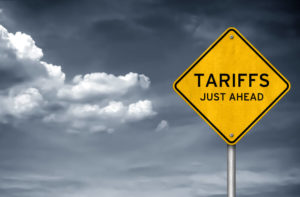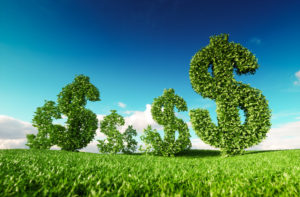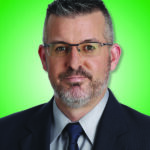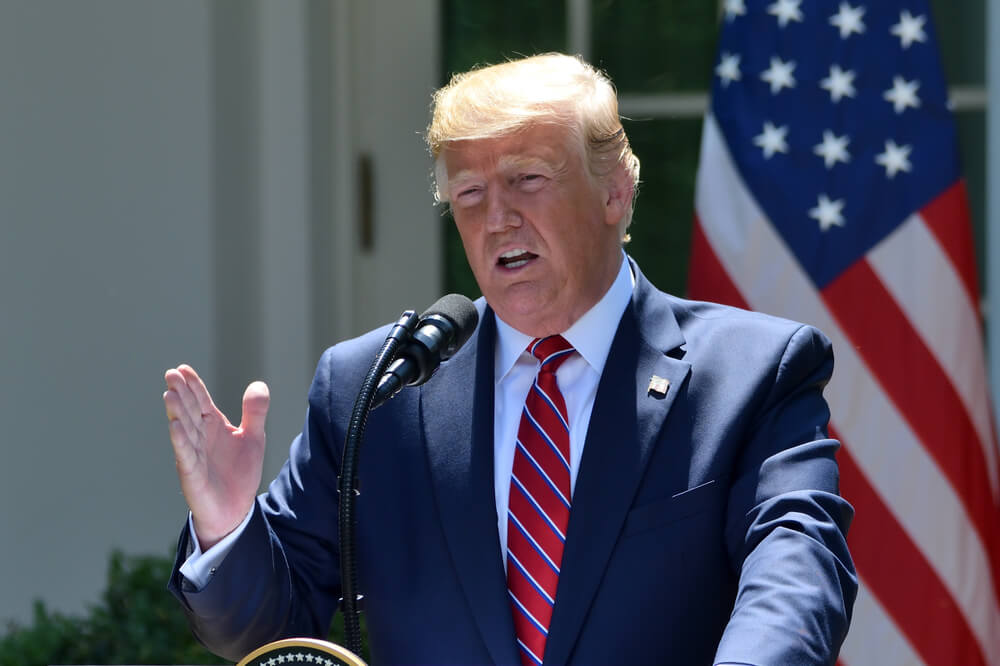The World Economic Forum Annual Meeting kicked off in Davos, Switzerland, on Tuesday with U.S. President Donald Trump talking up the U.S. economy, new tariffs talk and Russian spies on the scene posing as plumbers.
The annual meeting brings political, business and cultural leaders from around the world to discuss global, regional and industry agendas.
Tuesday’s headlines were, as usual, dominated by Trump, who lauded the U.S. economy, calling it “nothing short of spectacular.”
By doing so, he also took aim at the Federal Reserve by suggesting the policies of the central bank have held back the American economy. He added the rates set by the Fed are forcing the U.S. to compete with nations getting a negative rate — which hardly anyone in the U.S. actually wants.
“They get paid to borrow money, something I could get used to very quickly,” he said. “Love that.”
Trade Deal Skepticism
While President Donald Trump touted the signing of a phase one trade deal with China, many world leaders at the summit have doubts over the second phase.
 Some of those leaders cast doubt over whether a phase two deal would be ready by the end of Trump’s first term as president.
Some of those leaders cast doubt over whether a phase two deal would be ready by the end of Trump’s first term as president.
The biggest issue to the second phase could be the removal of all existing U.S. tariffs on Chinese imports.
U.S. Treasury Secretary Steven Mnuchin told the Wall Street Journal Tuesday that a phase two deal may not include removal of all of those tariffs.
“We may do 2A and some of the tariffs come off. We can do this sequentially along the way,” he said.
That stand has raised serious doubts about whether the deal would be done anytime soon.
“No one thinks it’s going to happen,” Ian Bremmer, the president of political consulting firm Eurasia Group told CNBC after being asked where Davos attendees stand on future trade talks. “I really would be shocked to see a trade two deal get done before the election.”
Tariffs could be used to keep China in negotiations, but if Trump wins a second term there would be pressure from American businesses to get the second phase completed.
“I don’t think we see phase two in the remainder of this term, but I think if he is reelected certain people are going to try to hold his feet to the fire to deliver on this. I think some Democrats are going to come back and say, ‘You promised us this and you haven’t done it,’” Citigroup CEO Michael Corbat told CNBC at Davos.
There are even those who cast doubts over whether China will be able to hold up its end of the phase one deal, signed just last week.
Speaking of Tariffs
Trump said Tuesday he would consider putting additional tariffs on European cars if the European Union doesn’t support what he called a “fair deal.”
The Washington Post reported last week that Trump has suggested a 25% tariff on automobiles exported from Europe if Germany, Great Britain and France didn’t publicly accuse Iran of violating the 2015 nuclear agreement.
In October 2019, the World Trade Organization ruled that the European Union provides plane maker Airbus unfair subsidies. That ruling enabled the U.S. to slap tariffs on nearly $7.5 billion of European imports.
Slamming Climate Change
During his opening speech Tuesday, Trump also called climate change activists “prophets of doom.”
 “To embrace the possibilities of tomorrow, we must reject the perennial prophets of doom and their predictions of the apocalypse,” Trump said. “They are the errors of yesterday’s fortune tellers and we have them and I have them and they want to see us do badly, but we don’t let that happen.”
“To embrace the possibilities of tomorrow, we must reject the perennial prophets of doom and their predictions of the apocalypse,” Trump said. “They are the errors of yesterday’s fortune tellers and we have them and I have them and they want to see us do badly, but we don’t let that happen.”
That came at the same time Trump said the U.S. would join an initiative to plant 1 trillion trees worldwide.
One such climate change activist, Greta Thunberg — who spoke before Trump’s speech — slammed world leaders, suggesting they have done “basically nothing” to reduce carbon emissions globally.
“Pretty much nothing has been done since the global emissions of CO2 has not reduced,” Thunberg said. “(If) you see it from that aspect, what has concretely been done, if you see it from a bigger perspective, basically nothing … it will require much more than this. This is just the very beginning.”
After Trump’s speech, in which he announced the U.S. would join the One Trillion Trees Initiative, she said “planting trees is good” but not enough.
The World Economic Forum in Davos continues through Jan. 25.
Russians Accused of Spying, Again
There were Russian rats in Davos, according to Swiss police who allegedly found two culprits trying to bug world leaders during the World Economic Forum taking place this week.
Swiss police took in two Russian men after that had overstayed their welcome back in August 2019, according to a Financial Times report.
A different report from Zurich’s Tages-Anzeiger newspaper said the police had determined that the men were spies employed by the Kremlin with a mission to bug the conference location in an effort to tap into important conversations between some of the 3,000 dignitaries and business leaders in attendance, including the U.S. president.
At least one of the Russians claimed to be a plumber and both had diplomatic passports, a Financial Times report said. Stanislav Smirnov, a spokesman for the Russian embassy, said diplomats aren’t the only Russisans eligible for diplomatic passports.
Stanislav Smirnov, a representative for Russia’s embassy in Switzerland, told CNBC that the story was only “one more attempt to undermine Swiss-Russian relations.
“The story goes, as far as I understand it, is that police wanted to check documents of men who they thought were suspicious,” Smirnov continued. “They were released, but still observed. The police did not see anything suspicious and the men just left.”
Switzerland, which has remained a place of neutrality for many years, has been been a hotbed for Russian activity of late. A Swiss Federal Intelligence Service study in 2018 found that one in four Russian diplomats housed in Switzerland was a spy.
And security is a key concern for attendees in Davos this week. Trump and his entourage’s two-day visit with other world leaders is going to cost U.S. taxpayers at least $3.4 million. The car rentals for the White House Communications Agency, who are responsible for encryption of the president’s communications, is estimated to cost $266,000 alone.





